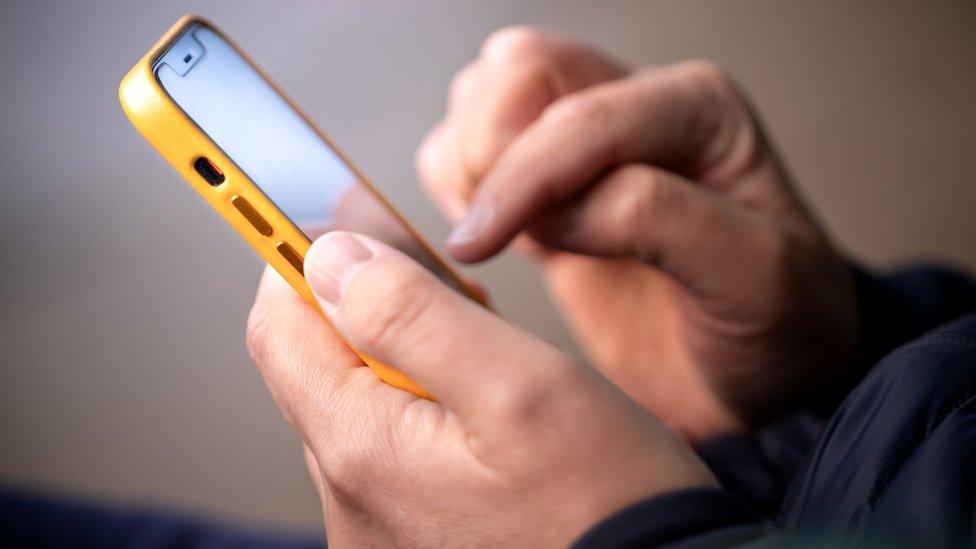'I talked to mum more after I gave up my smartphone'
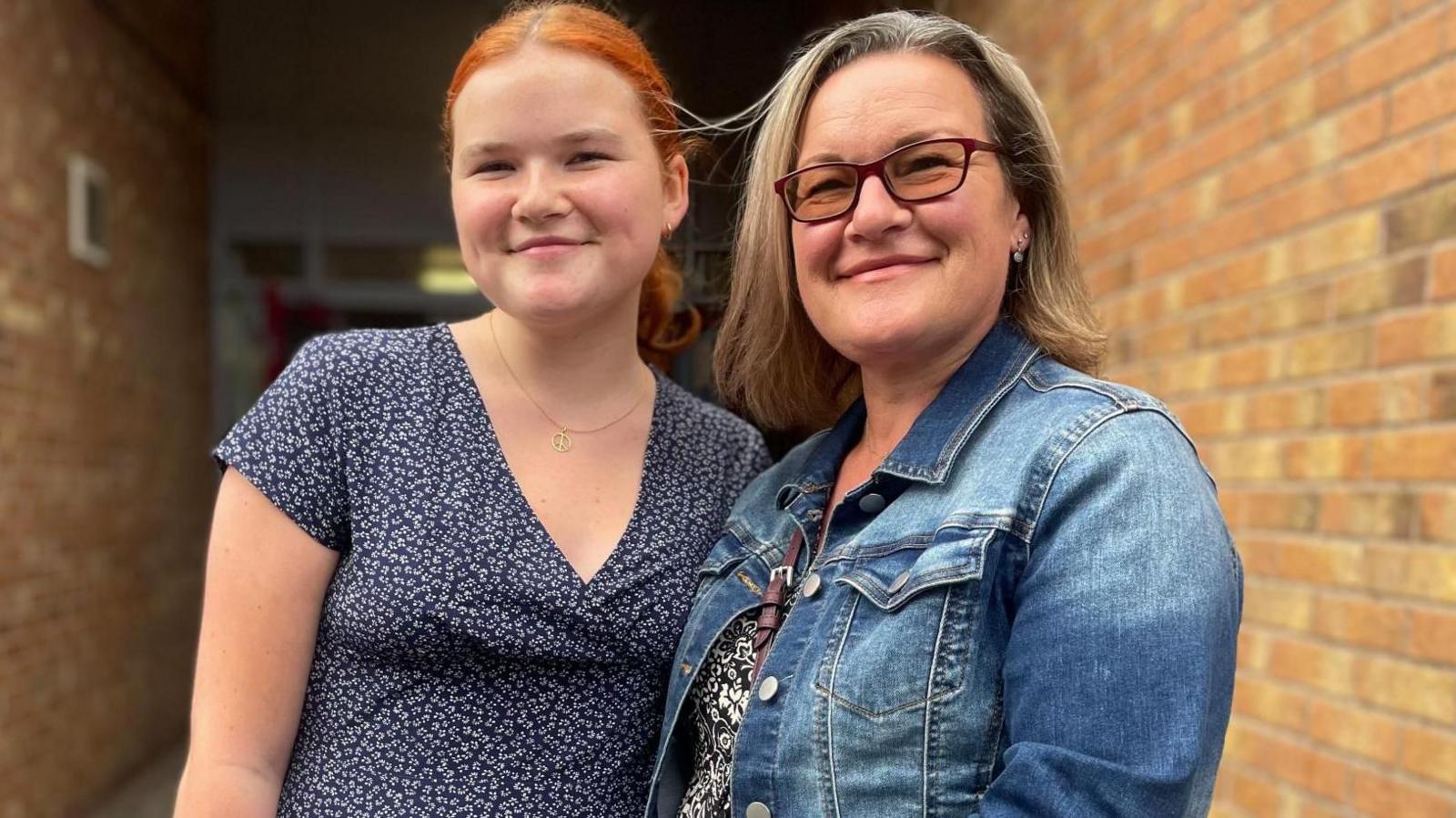
Meghan, 15, and her mother spoke more when the teenager ditched her smartphone for a school project
- Published
Smart phones are part of modern life but the amount they are used can be a battleground, with parents and schools often on one side and young people on the other. So what would the effects be if children gave up their phones – even if just for a short time?
Meghan was interested in ditching her device, but said her friends thought the idea of being without a smartphone – and the myriad apps within – was "ridiculous".
The 15-year-old is one of 32 pupils who took part in a project at school to swap their high-tech handheld items for 'brick' phones, which can deal with calls but not be on the internet.
Despite the doubts expressed by Meghan's peer group, she decided to hand over her phone as part of the three-week project at Ecclesfield Secondary School in South Yorkshire.
"I wanted to do it because I feel like the older I get the more I realised what you see on your phone can be harmful, so coming away from it could be nice," she explained.
As well as pupils, four staff gave up their smart devices as part of the scheme, which was a collaboration between the school, Sheffield Hallam University, Mitie and Career Teachers.
Did Meghan manage to survive without her internet and social media-connected phone for the project?
She said it had been "easier" than she initially feared.
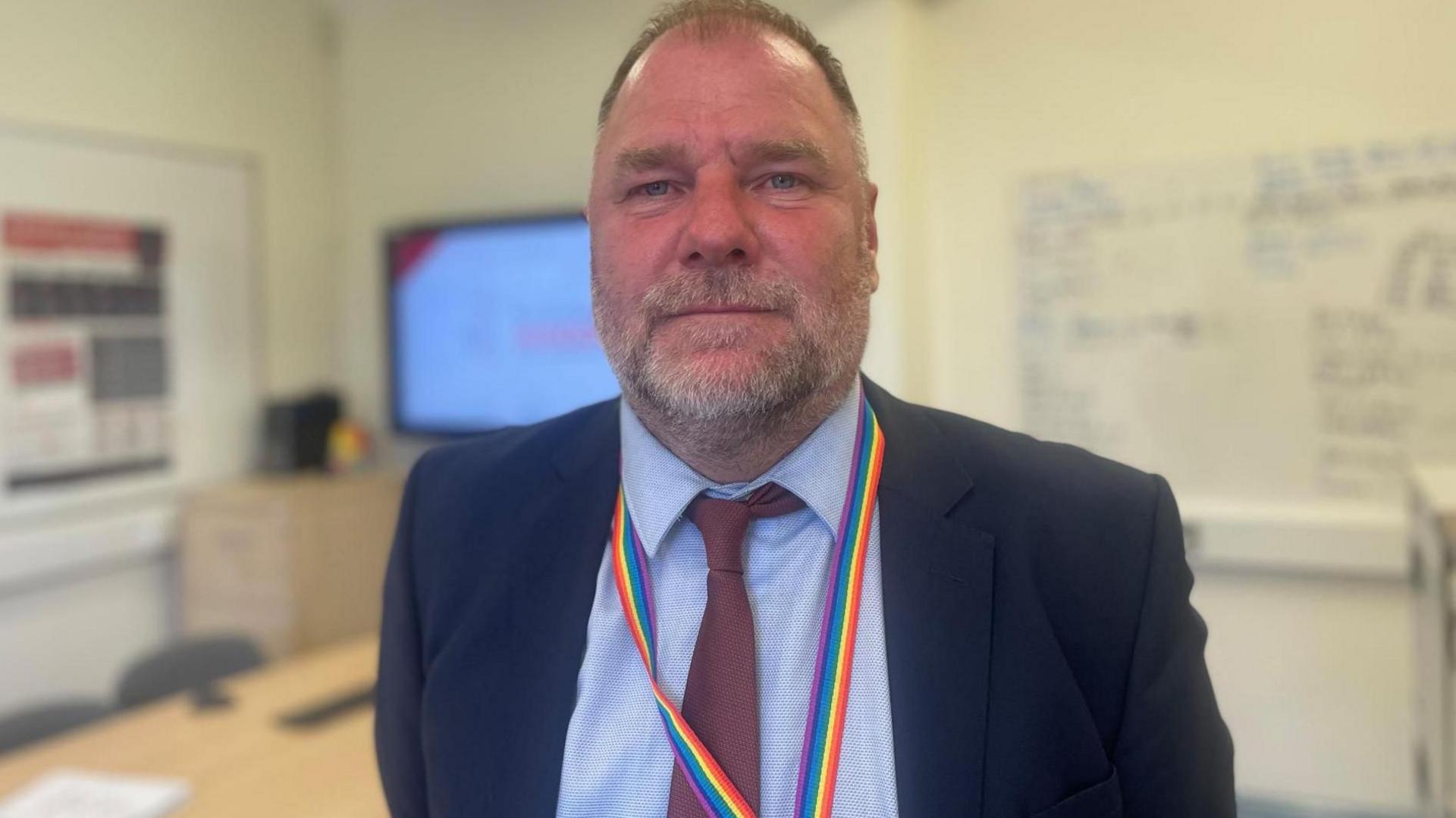
Head teacher Richard Walkden said smartphones "make kids grow up quicker"
The time away from scrolling meant there had been more opportunities to do other things, Meghan said.
"I got more homework done but talking to my family more was my favourite thing," she said.
"Before if I was upset I'd go to my room and scroll on TikTok, but now I didn't have my phone so I chatted much more to my mum."
The idea for the project came from Liz Hunter, who teaches Personal, Social, Health and Citizenship Education at Ecclesfield.
"You don't have to work in education to see the growing impact that modern mobile phones increasingly have on our children," she said.
Ms Hunter said those who took part in the project had reported "so many positives, things like less anxiety, better friendships, better sleep, and more time to engage in other activities".
Earlier this year, a Parliamentary bill that had suggested banning smartphones in schools and addictive algorithms aimed at young teenagers was watered down to gain government support.
Head teacher Richard Walkden, who has been in charge for eight years as smartphone use has become a greater talking point across the UK, said he was proud of the students and staff who took part.
"My role is to protect childhood," he said.
"We banned mobile phones from school many years ago. They terrify me. They make kids grow up quicker."
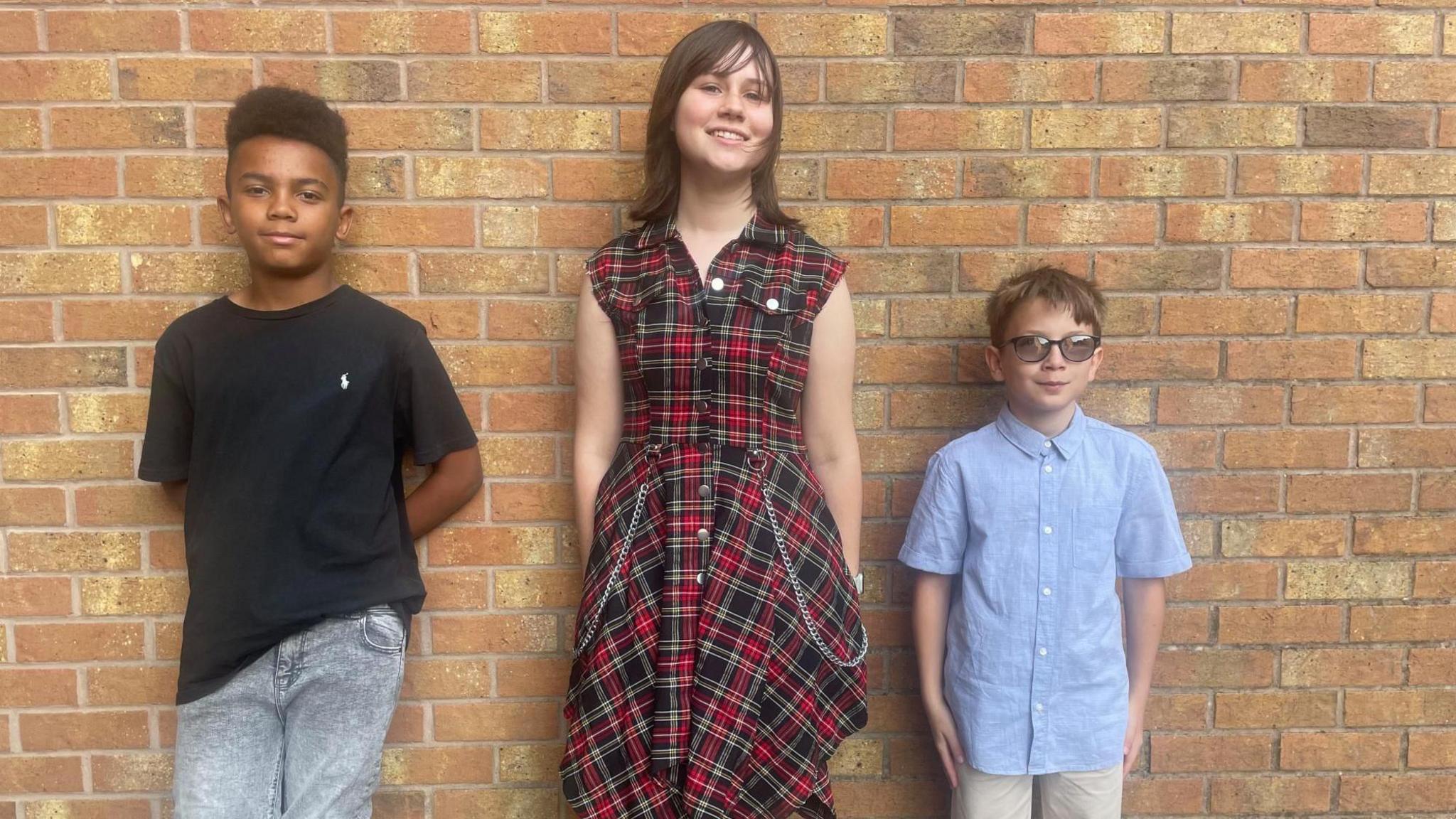
Beau, Olivia and David were amongst the 32 pupils that signed up for the project
A 14-minute film entitled Why Don't You?, made by firm Revealing Reality, which tracked the pupils' progress was premiered on 14 July in the main hall of the school.
Other pupils the BBC spoke to also said they had found the phone break useful.
David, 12, said the project had given him more time to help his dad working with wood.
"It was quite nice," he said. "I couldn't do the dangerous stuff but my dad helped me get involved and work with the resin."
After receiving his phone back, he said he did not feel he had "missed out".
"I just had a bunch of messages from my form groupchat full of stickers," he added.
Beau, 13, took up fishing during the project using his grandad's kit.
"I went out almost every day," he said.
But the teenager did confess to "missing" his phone when he caught a fish and wanted to "celebrate" with a picture.
Listen: Inside the project to dial down smartphone use
Olivia said she had found the experience "quite freeing".
The 15-year-old said: "I found it quite nice to not have the burden of replying to every message."
But did the short project create long-term change?
Olivia was in two minds.
She admitted that although she now used her smartphone less, she had felt herself "slipping into old habits".
Ofcom, the online safety regulator, reported in February 2024 that 99% of children spend time online and nine in 10 children own a mobile phone by the time they reach the age of 11.
They also found three in five secondary school-aged children had been contacted online in a way that potentially made them feel uncomfortable.
Ms Hunter said the school were now looking at how they could spread the message to encourage their children to live "less of their lives online."
She said: "We're looking at our school policies for mobiles. We're wanting to do more work with parents, and we're also looking to work with our local primary schools to try and capture the children at a younger age and get them thinking about their phone use."
Get in touch
Tell us which stories we should cover in Yorkshire
Listen to highlights from South Yorkshire on BBC Sounds, catch up with the latest episode of Look North
Related topics
- Published19 September 2024
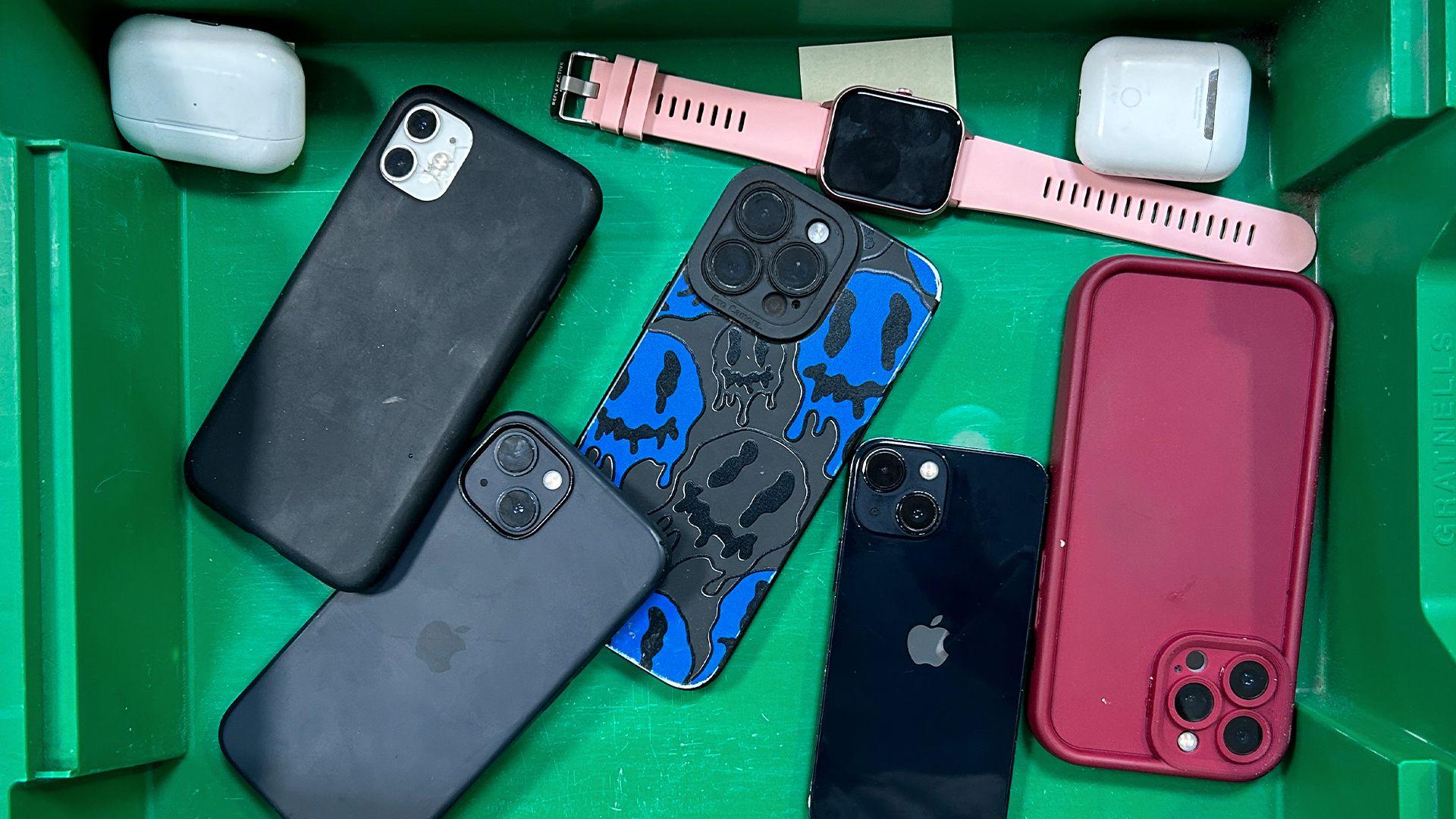
- Published1 February 2024
